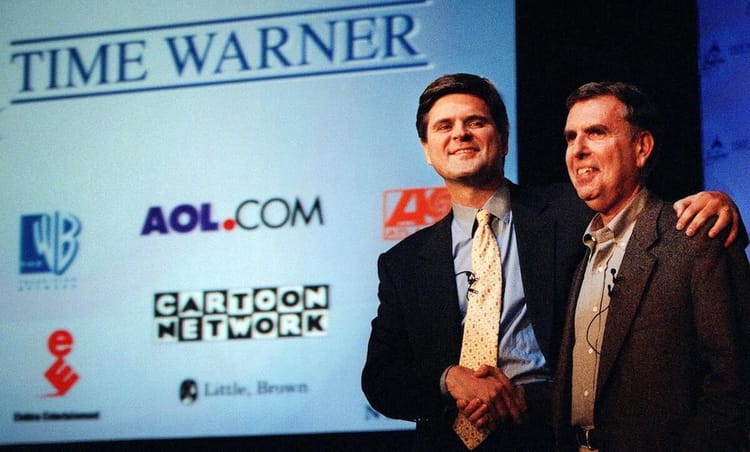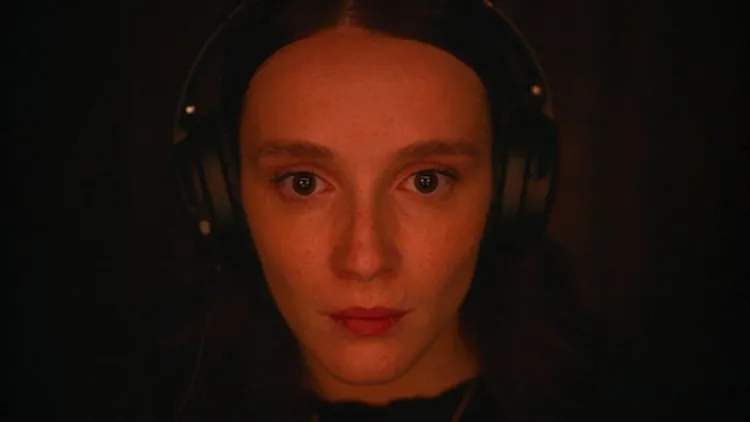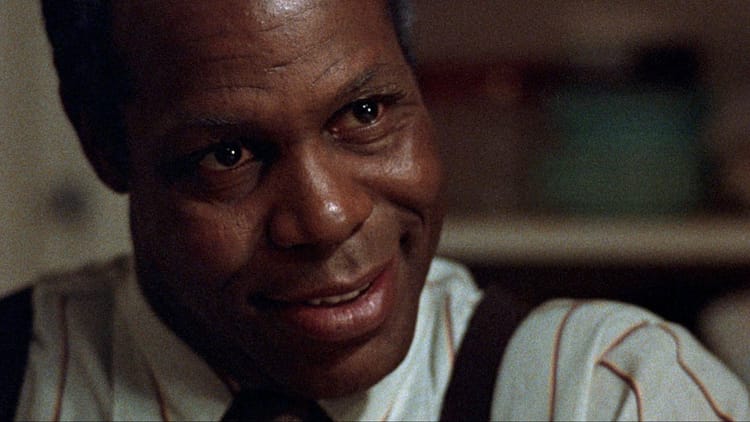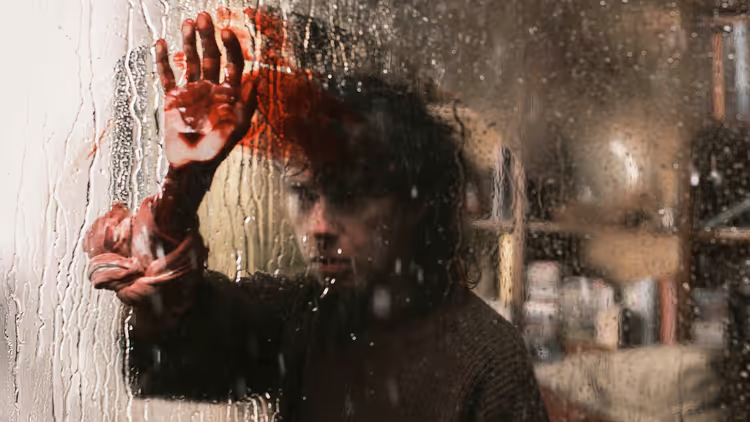Blurbing For The Weekend 11/1/24
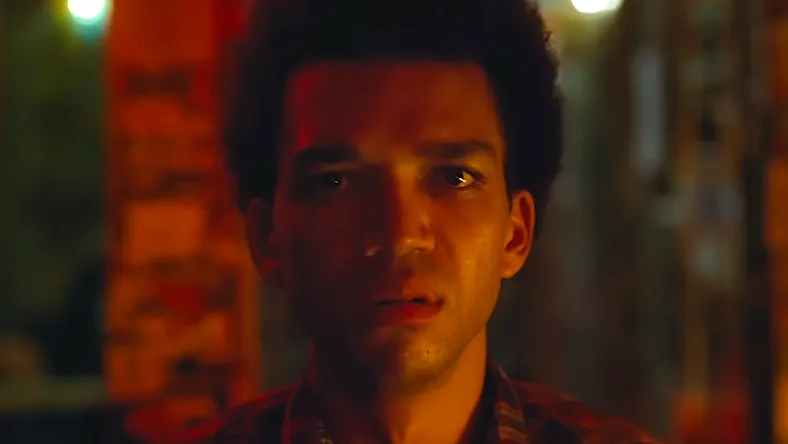
Reactions to I Saw The TV Glow seem generally split between a cranky “that’s not what being a millennial TV nerd is like!” and a heartfelt “that’s what being transgender is like!!!” As an xennial straight nerd, all I can say to each side is “I feel your pain.” If you came to I Saw The TV Glow hoping for something more centered on the surreal potential of VHS-era nostalgia, season one of Channel Zero (streaming on Shudder/AMC+) is about a mysterious puppet show for kids called Candle Cove that may have been syndicated by Satan. Anybody who wanted more footage of Mr. Melancholy and less of Justice Smith afraid to speak should proceed to that show immediately (and every season of Channel Zero is fantastic, just FYI).
Not that I didn’t love I Saw The TV Glow. While I’m pretty damn dull when it comes to all things Kinsey and beyond, I was a precocious, sensitive kid once, anxious, bullied for a physical deformity and predominantly raised by a busy single mother. I was a “late bloomer” who wasn’t great at making friends and terrified of risking rejection by seeking more than that. Knowing how much frustration and isolation I experienced, I can only imagine what it’s like for people whose identity and sexuality are needlessly shunned and demonized by large portions of society, if not one’s own family. Even more so before it was easy to crowdsource a community online. As a portrait of two lives in such an era, I Saw The TV Glow is one the most uniquely heartbreaking movies I’ve ever seen.
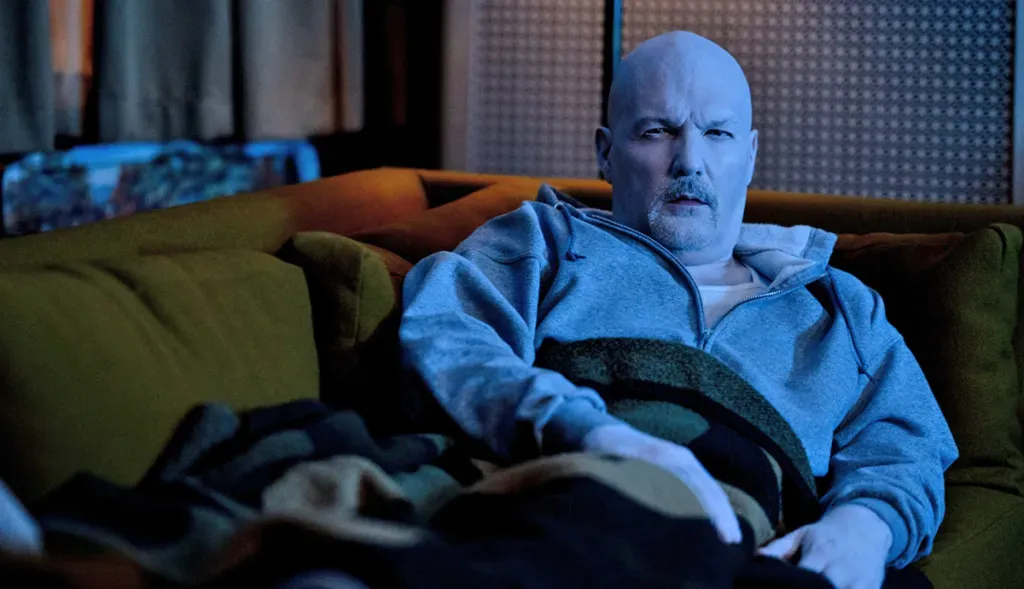
The movie starts off fairly earthbound in 1996, with shy Owen meeting the older Maddy in high school, trying to join in their obsession with a teen sci-fi show named The Pink Opaque (and yes, I’m Cocteau Twins fan enough to find this a little distracting). Though Owen is in every scene and even provides exposition directly to the screen, little of his interior life is examined. Gradually, it becomes clear this is avoidance; Owen is terrified of what’s inside him. As Maddy disappears and returns to his life dramatically, with even more dramatic stories of the world beyond their small town, Owen grows and yet doesn’t, hiding in his childhood home as the years pass, The Pink Opaque soon his only connection to a life not quite so dull.
This is about as much as I knew before seeing I Saw The TV Glow, and if you haven’t watched it but might, it may be time to jump to the next blurb. Up to this point in the film, I was ready to say Glow was an affecting tale of disenfranchised youth, but not really horror, much like director Jane Schoenbrun’s previous film, We’re All Going To The World’s Fair. But where Fair lets the future of its lead remain ambiguous, we see how Owen’s fear of the surreal within turns the banality around him into something truly nightmarish. As he commits to a life of servitude and denial, youth and pop culture become merely loud and humiliating, removed from hope and possibility. I wasn’t prepared for the film to become both more grotesque and less sci-fi, and I get why folks not on the metaphor’s wavelength were annoyed by the lack of Donnie Darko-style rules as to what’s really happening.
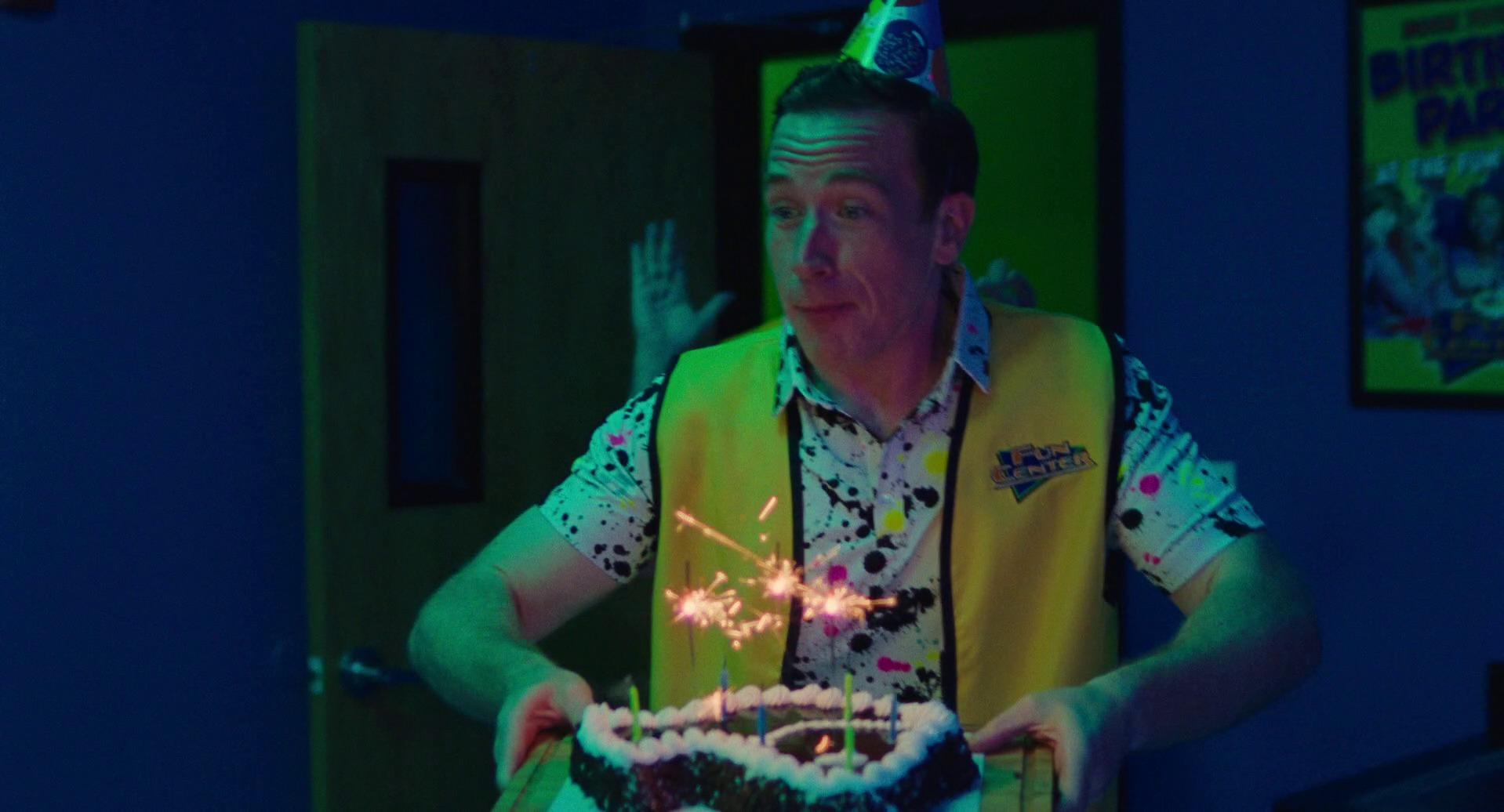
But fuck ‘em. I Saw The TV Glow undoubtedly grows more resonant the more you relate to Owen’s dysmorphia and the threat of repression, but just from my sympathetic, paternal perspective, Owen’s experiences in the final sequences remained terrifying and all too plausible. We see enough of Maddy’s journey to get why Owen would settle for parents incapable of understanding but at least present. He’s not desperate enough to risk even more isolation, but still agonizingly desperate underneath the surface. Full disclosure, I didn’t grasp the trans subtext of World’s Fair until I read about it (look, when I was a kid, I thought Morrissey was just shy), but it’s far more overtly acknowledged in Glow. I like to think I would have grasped it even if social media hadn’t given me a heads up.
The pop culture easter eggs? Some of those I did get: Fred Durst, utterly perfect as a dad of ambiguous threat and obvious inability to validate his kid’s pain, Connor O’Malley as goofy straight male confidence personified, and Amber Benson as a mom who gets enough to at least hug the hell out of someone who needs it. I almost recognized Pete & Pete as neighbors, though the appearances of Snail Mail and Phoebe Bridgers (the latter I kinda sorta knew was somebody) underscore my mild annoyance at the film’s inability to really commit to the late ‘90s as an aesthetic. I get how The Pink Opaque matters more as a totem of self-discovery than as a genuine corollary to Buffy The Vampire Slayer, but if you’re gonna use the same font…ah well. I’m not the real target audience for I Saw The TV Glow, and I still got more from it than possibly any other movie released this year. FIVE BAGS OF POPCORN.
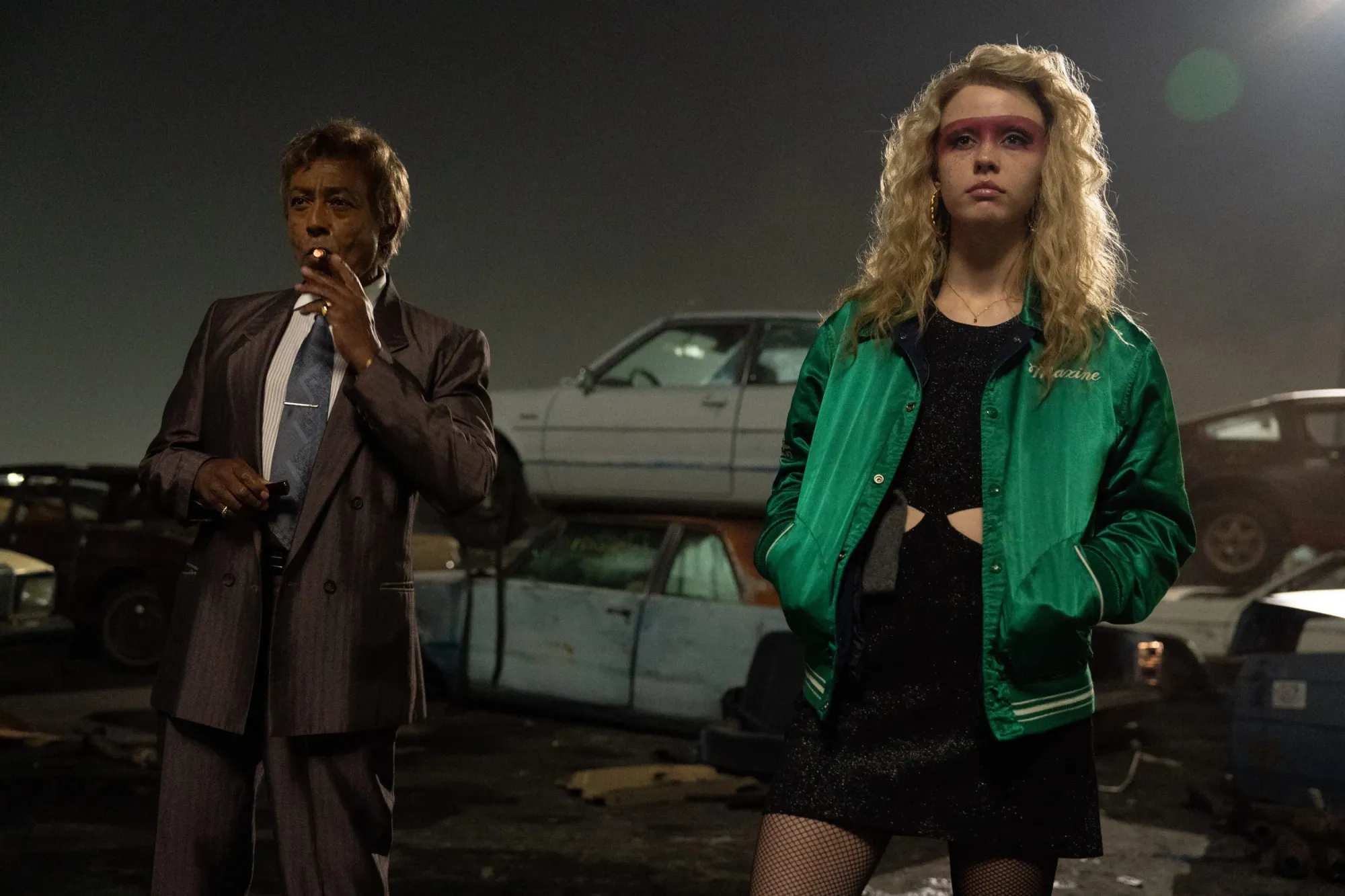
Despite my frustration with the moments of tepid homage in Ti West’s X, I can still call it a POPCORN CLASSIC today. Late night scrolls revealed it to have just enough gore, dread and charismatic performances (also nudity) to get by, even if the split-screen and dramatic cross-cutting to proselytizing add even less than a shot of Brian DePalma’s taint would. The prequel Pearl was a major step up, though, West grasping Mia Goth, all eyes and no eyebrows, was more than ready to carry a Joan Crawford-style vehicle. I’ve long complained Ti West is great at leading interesting people down a long hallway and terrible at making what’s at the end of it even half as memorable, but Pearl had me thinking he may have found a muse to grow with. Tragically, MaXXXine reveals sometimes a muse ain’t enough.
Goth, instead of providing the mouth-foaming hysterics that made her my queen of 2023 (the year Infinity Pool came out and the year I saw Pearl), portrays Maxine Minx, the sole survivor of X, as a tough cookie too experienced and determined to shriek even when she’s crushing a stalker’s balls with her heels. The plot, about someone eager to remind Minx she was in X, is too obvious by half, and heartbreakingly short on memorable set pieces. Instead, we get a cavalcade of stars like Kevin Bacon, Halsey, Giancarlo Esposito, Elizabeth Debicki, Bobby Cannavale, Michelle Monaghan and Lily Collins, none of whom would appear in an genuinely trashy thriller set in the 80s smut world. The celebs get to give speeches that are not just written by Ti West but edited by Ti West, speeches never having been what I go to Ti West movies for. Honestly, I'm flattering West if I suggest he's a Martin Scorsese who's found his Robert DeNiro, but is too vain to realize he also needs a Thelma Schoonmaker and a Paul Schrader.
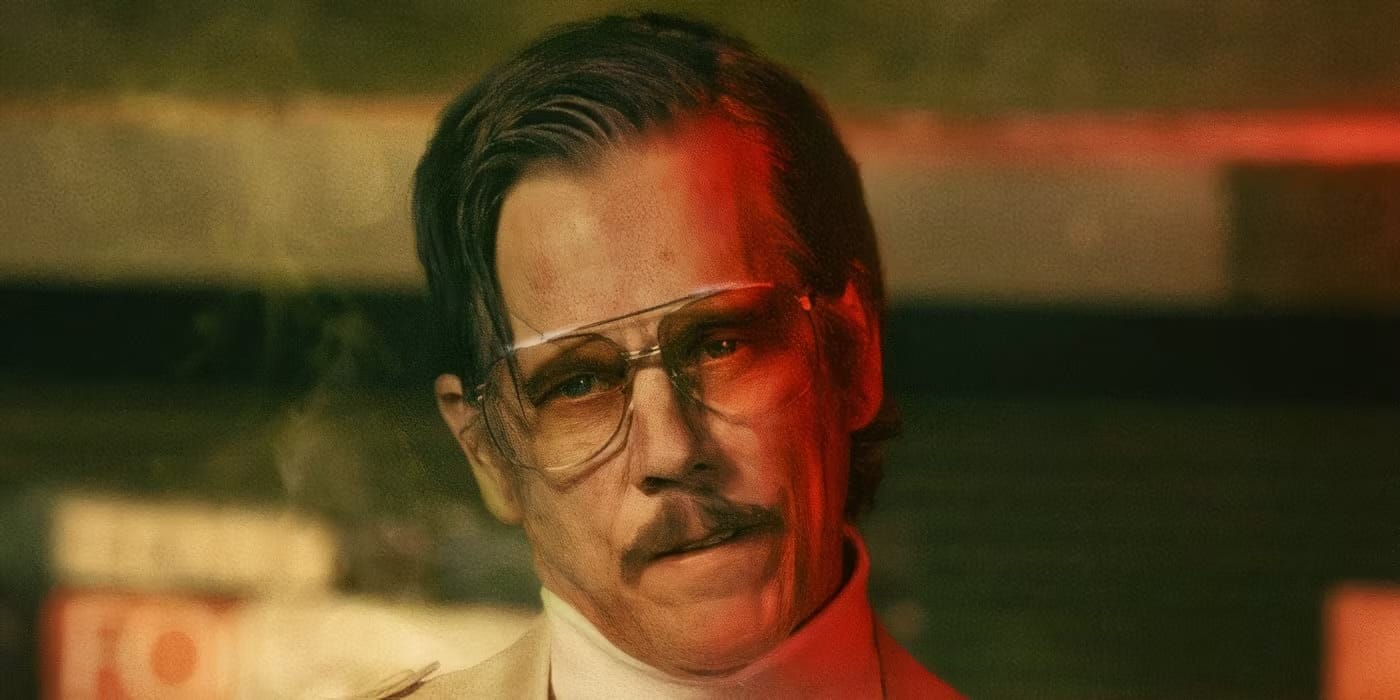
Debicki probably shits regally, and Bacon has been clowning on screen since before West was born, so both have no problem playing to type here (though they’ve done it better before). But when Lily Collins stands in a trailer door for several minutes explaining to Mia Goth what it takes to make it in Hollywood, it’s downright offensive that this is supposed to be an A24 movie, let alone an A24 horror movie. For all the implications of scintillating sex from the title on down, the only films I was actually reminded of in MaXXXine were Dan Aykroyd vehicles, and not the erotic ones like that scene in Ghostbusters. There’s a sequence in an auto salvage yard that resembles the one in Doctor Detroit, and the climax was straight up Dragnet, though the guy playing a psychotic TV preacher in MaXXXine is no Christopher Plummer. If West was intentionally misdirecting audiences on the kind of ‘80s trash he wanted to pay tribute to, I’d respect it. But I’d still be pissed off. THREE BAGS OF POPCORN.
My movie rating scale is explained here. If you think there's an even better or (hatewatchably worse) movie I should see in the last two months of 2024, feel free to tell me at anthonyisright at gmail dot com. Especially if it's already streaming! I'll even give you props on here if you're even close to right. That address works for other matters, too.

